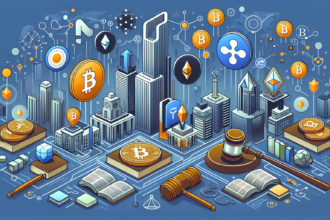The Influence of Technology on the Real Estate Market
1. Introduction to Evolving Technologies
With rapid advancements in technology, the real estate industry is continuously transformed, reshaping how investors access data, collaborate, and execute transactions. The influence of artificial intelligence (AI), big data analytics, virtual reality (VR), and blockchain technology is redefining investment strategies, due diligence processes, and market dynamics.
2. Artificial Intelligence and Big Data
AI is at the forefront of the technology revolution in real estate, enabling investors to process and analyze vast amounts of data. Large datasets provide insights into market trends, pricing patterns, and demographics, allowing predictive analytics to guide investment decisions. For instance, AI algorithms evaluate historical market data to forecast property values accurately.
Big data analytics complement AI by providing consumers and investors with robust data visualization tools. Through geographic information systems (GIS), real estate investors can visualize zoning laws, crime rates, school quality, and proximity to amenities, facilitating informed decision-making.
-
Predictive Analytics: Investors can leverage predictive models to assess potential property performance. Properties in high-demand neighborhoods might experience a price surge due to economic developments forecasted by AI models.
- Targeted Marketing: Investors can refine their marketing strategies by utilizing AI to identify and target specific customer demographics, thus resonating better with potential buyers or tenants.
3. Virtual and Augmented Reality
Virtual reality has revolutionized property viewing experiences, allowing potential buyers to explore properties without physical visits. This innovation not only streamlines sales but also enables real estate agents and investors to showcase properties in immersive environments.
-
360-Degree Tours: Investors can engage prospective buyers in virtual tours, enabling them to experience properties from anywhere in the world. This capability reduces time lost in travel and enhances convenience.
- Augmented Reality (AR): AR applications allow potential buyers to visualize how a property would look with their modifications, effectively reaching out to clients who may not have the vision to see potential in a space.
For investors, this technology opens up potential cross-border investments, making it easier to engage with international buyers and expanding market reach.
4. Blockchain Technology
Blockchain technology is making waves in the real estate sector by enhancing transparency, streamlining transactions, and reducing fraud risk. The decentralized nature of blockchain allows for secure digital ledgers that record ownership, transactions, and property histories.
-
Smart Contracts: These self-executing contracts reside on the blockchain and automatically enforce terms and conditions once predetermined conditions are met. This capability reduces the need for intermediaries, lowering transaction costs and timeframes.
- Tokenization of Real Estate: Investors can fractionalize expensive properties into smaller, tradable assets called tokens. This democratization allows smaller investors to participate in high-value markets, thereby broadening investment opportunities.
5. Property Management Technologies
The rise of proptech (property technology) has also transformed property management, leading to increased efficiency and improved tenant experiences.
-
IoT Devices: Smart home technology enhances property management by enabling real-time monitoring of properties. IoT devices can track energy use or report maintenance issues, allowing property managers to address tenant concerns proactively.
- Tenant Communication Platforms: Digital communication tools simplify interaction between property managers and tenants, offering chat features and complaint resolution systems that enhance tenant satisfaction and loyalty.
6. Crowdfunding Platforms
Real estate crowdfunding has opened new avenues for investment, allowing individuals to contribute to property projects without needing substantial capital. This approach connects developers with numerous small investors, spreading financial risk while promoting community engagement.
-
Diverse Investment Opportunities: Crowdfunding platforms provide access to a wide range of projects, including residential developments, commercial spaces, and mixed-use properties. This variety enables investors to diversify their portfolios easily.
- Performance Tracking: Investors can monitor the performance of their investments through digital dashboards, providing insights into cash flows, returns, and property valuations.
7. Data Compliance and Cybersecurity
With the increasing reliance on digital platforms, compliance with data protection regulations, such as GDPR and CCPA, is paramount. Investors must assess the integrity and compliance of the technologies they utilize.
-
Risk Mitigation: Investing in secure platforms reduces the risk of data breaches and enhances consumer trust, ultimately impacting transaction success rates.
- Cybersecurity Investments: Many firms now prioritize robust cybersecurity measures, which include encryption and two-factor authentication, to protect sensitive data. This investment reinforces business credibility.
8. Sustainability and Green Building Technologies
Evolving technologies also play a central role in promoting sustainability within the real estate sector. ‘Green’ technologies not only comply with regulatory standards but also respond to increasing consumer demand for eco-friendly properties.
-
Energy-Efficient Systems: Smart thermostats, energy-efficient lighting, and green building materials reduce operational costs and enhance property value over time.
- Data-Driven Sustainability: Investors can utilize data analytics to determine the environmental impact of their investments, providing a clear roadmap for sustainable practices.
9. Challenges of Implementing New Technologies
While evolving technologies offer significant advantages, investors must also navigate various challenges associated with their implementation.
-
Adoption Costs: Integrating new technologies may require substantial upfront investment, which could dissuade traditional investors.
-
Training and Adaptation: Ensuring that all stakeholders understand and can effectively use new technologies involves training, which may be time-consuming and complex.
- Market Volatility: The rapid pace of technological change can lead to speculation and volatility in the real estate market, requiring investors to stay informed and adaptable.
10. Conclusion
The intersection of evolving technologies and real estate investments demonstrates a paradigm shift that promotes efficiency, reduces costs, and enhances accessibility. By embracing AI, big data, blockchain, and other innovations, investors can make more informed decisions, mitigate risks, and capitalize on emerging trends. As the landscape continues to evolve, staying abreast of technological developments is crucial for maximizing the potential of real estate investments.
















